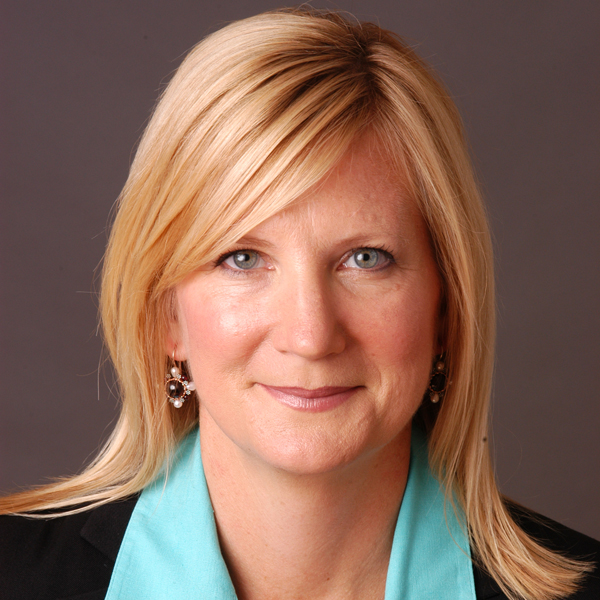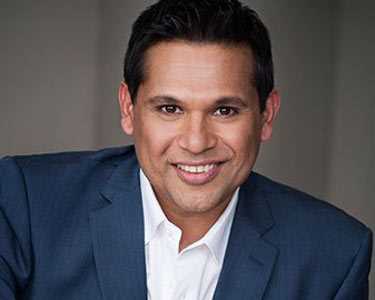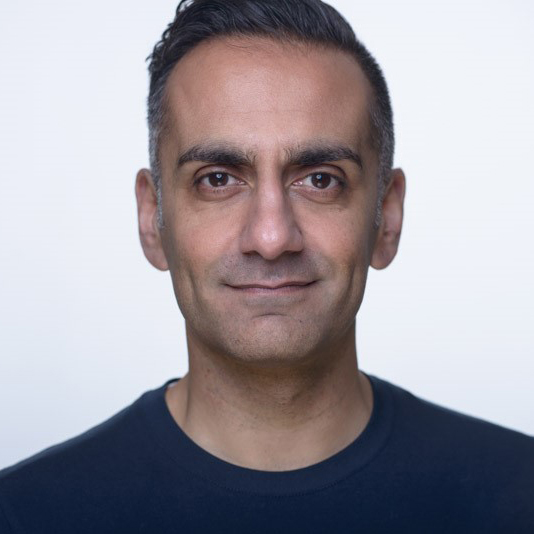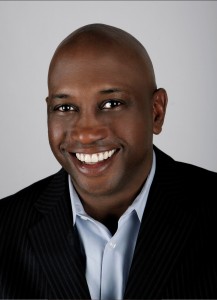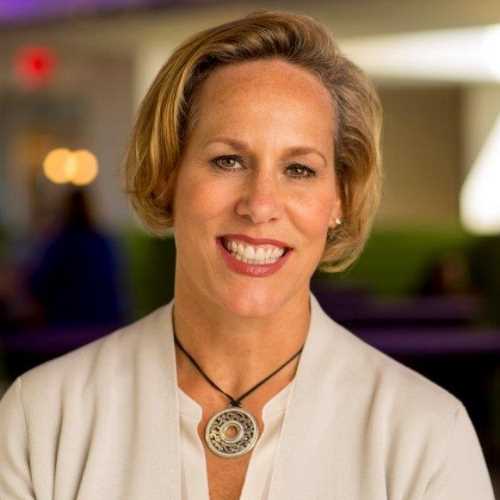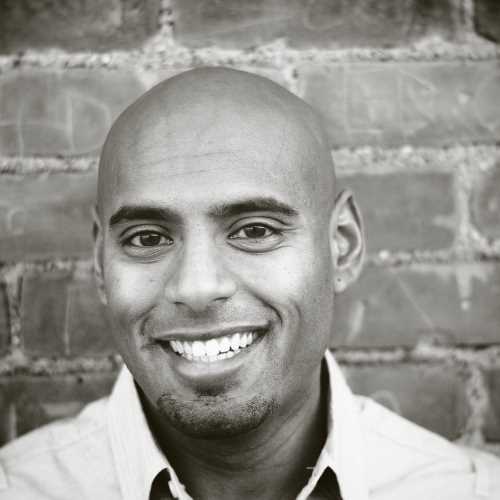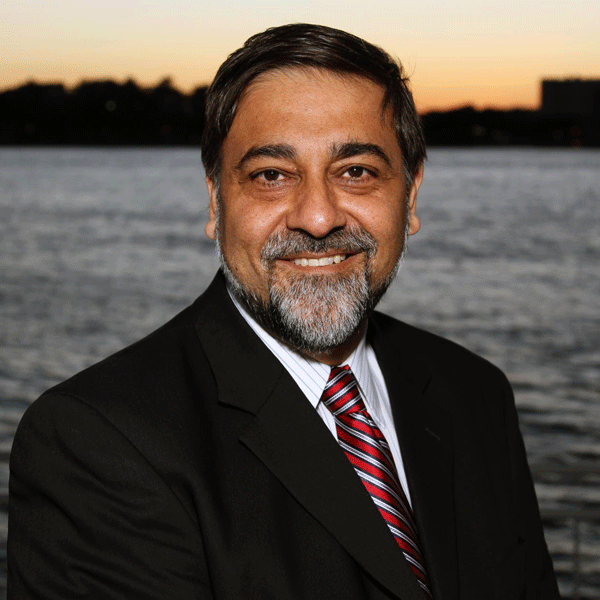
Vivek Wadhwa
- Academic, Singularity University & Carnegie Mellon University
- Columnist for The Washington Post
- Silicon Valley Forum's 2018 Visionary Award-Winner
Travels From
California
Vivek Wadhwa Speaker Biography
Called “Silicon Valley’s most provocative voice” for his ideas on technology trends, globalization, US competitiveness, and the future, Vivek Wadhwa’s work puts him at the heart of innovation. From tech entrepreneur and business owner to accomplished academic and widely published author, he served as a Stanford University research fellow and the Director of Research at Duke University’s Pratt School of Engineering, where he taught courses on the impact of technology. Vivek Wadhwa now serves as a Distinguished Fellow and professor at Carnegie Mellon University’s engineering school in the heart of Silicon Valley. Formerly, he led research at Singularity University, an institution that educates a select group of leaders about the exponentially growing technologies that are soon going to change our world.
Vivek has also been a senior research associate at Harvard Law School, a visiting scholar at UC-Berkeley, and a distinguished visiting scholar at Emory University. He is the author of the 2018 book, Your Happiness Was Hacked: Why Tech is Winning the Battle to Control Your Brain—and How to Fight Back. His 2017 book, The Driver in the Driverless Car, looks at the impact of automation and AI on business, and was recognized by Financial Times as one of the “Best Business Books of 2017” and listed as a contender for the Financial Times/McKinsey Business Book of the Year prize.
Known for pioneering change and innovation, Wadhwa’s speeches offers a look into how exponentially advancing technologies including robotics, artificial intelligence (AI), computing, synthetic biology, 3D-printing, and nanomaterials will change our world, disrupt entire industries, and create new ones. As it is increasingly possible for small teams to complete work once reserved for governments and large corporations, Wadhwa also focuses on the keys to the US remaining competitive and solving grand challenges in the face of the rapid transformation shaping business in India, China, and Latin America.
An advisor to governments and successful entrepreneurs alike, Wadhwa previously founded two influential software companies, prompting Forbes to name him a “Leader of Tomorrow” and Fortune to declare his start-up Relativity one of the “25 coolest companies in the world.” In addition to his media accolades, the US government awarded Wadhwa distinguished recognition as an “Outstanding American by Choice,” and he was named a “Top 100 Global Thinker” by Foreign Policy Magazine. In 2013, TIME magazine listed him as one of the “40 Most Influential Minds in Tech.”
Wadhwa is also the author of the book, The Immigrant Exodus: Why America Is Losing the Global Race to Capture Entrepreneurial Talent, which The Economist named as a “Book of the Year” in 2012, and Innovating Women: The Changing Face of Technology. He is a syndicated columnist for The Washington Post and a contributor to The Wall Street Journal, The Huffington Post, and VentureBeat. He has been featured in The Economist, Forbes, The New York Times, U.S. News and World Report, and Science Magazine, among others, and has appeared on US and international TV stations, including CBS, PBS, CNN, ABC, NBC, CNBC, and BBC. In 2016, he accepted an honorary professorship at University Ricardo Palma of Lima in Peru, placing him closer to the booming entrepreneur community in Latin America.
Why Innovation Isn’t Dead: A Look At Our Technology Future. There is a lot of pessimism about the future. Some people argue that, other than advances in computer-related fields, technological progress has actually stalled: The internal-combustion engine, invented in 1876, still rules our highways; the cancer death rate has barely changed since 1971; today’s internet was actually designed in the 1960's. There are fears that world wars will break out over water and energy shortages and that our standards of living will fall.
These perceptions couldn’t be further from the truth. Vivek Wadhwa discusses why he believes that this will be the most innovative decade in human history. He explains how exponentially advancing technologies—in fields such as robotics, AI, computing, synthetic biology, 3D printing, medicine, and nanomaterials—will enable us to start solving humanity’s grand challenges. These technologies will disrupt entire industries, provide opportunities to create new ones, and help solve humanity’s grand challenges. For example:
- 3D printing and robotics will enable manufacturing to return to the US.
- Advances in DNA sequencing and synthetic biology will make it possible to engineer drugs for the individual and create personalized stem cell lines.
- Autonomous, self-driving cars will revolutionize urban transport.
- Low-cost tablets and artificial-intelligence–based learning systems will change the teaching paradigm and bring education to the world’s masses.
- Star Trek–like tricorders, holodecks, and replicators will become a reality.
These advances aren’t going to come from governments and large research labs but from small groups of motivated people. Wadhwa give audiences a tour of the “Star Trek” future we are headed into.
Disrupted Industries & Trillion-Dollar Opportunities. Not long ago, organizations could see their competitors coming. Management guru Clayton Christensen coined the term “disruptive innovation” to describe how competition worked: a new entrant attacked a market leader by launching low-end, low-priced products and then relentlessly improving them. Now Christensen’s frameworks have themselves been disrupted—because you can no longer see the competition coming. Technologies are no longer progressing in a predictable linear fashion, but are advancing exponentially and converging. Fields such as computing, medicine, artificial intelligence, 3D printing, robotics, nanomaterials, and synthetic biology are advancing simultaneously, and combining these allows one industry to rapidly disrupt another—before market leaders even know what hit them.
Practically every industry will be disrupted over the next few years, including finance, insurance, healthcare, manufacturing, transportation, education, IT services, and communications. Very few of today’s Fortune 500 companies will be on that list by the early 2020's. They will go the way of Blockbuster, Kodak, RIM, Compaq, and Nokia. This is not all bad news, because disruption creates opportunities. New industries will emerge, and companies that lead the change will have the trillion-dollar market capitalizations. Business executives need to understand that:
- Trillion-dollar opportunities happen at the intersections of exponential technologies
- Disruptions are happening in every industry where technology can be applied
- Entrepreneurs can now do what only governments and big corporations could do before
- If they don’t disrupt themselves, they will be disrupted by startups from other industries.
Businesses must learn the new rules of the innovation game and transform their employees into intrapreneurs who think—and act—like the Silicon Valley entrepreneurs who are gunning for Goliath. Vivek Wadhwa teaches the basics of exponential technologies and convergence, provides examples of the disruptions that are under way in several industries, discusses the new rules of the innovation game, and challenges his audience members to think like today’s technology entrepreneurs—and to build the new billion-dollar businesses within their companies.
The Dark Side Of Advancing Technologies and Why Policy, Law, & Ethics Can’t Keep Up. Our laws and ethical practices have evolved over centuries. Today, technology is on an exponential curve and is touching practically everyone, everywhere. Changes of a magnitude that once took centuries to occur now happen in decades, sometimes in years. We haven’t come to grips with what is ethical, let alone with what the laws should be. The same technologies that are making it possible to solve humanity’s grand challenges—in education, water, food, shelter, health, and security—are also creating new nightmares.
Consider the question of privacy. Our laws date back to the late 19th century, and there is no consensus on what information should be public and what should be private. Our smartphones track our movements and habits. Our web searches reveal our thoughts. With the wearable devices and medical sensors that are being connected to our smartphones, information about our physiology and health is also coming into the public domain. Where do we draw the line on what is legal—and ethical?
Then there is our DNA. Genome testing will soon become as common as blood tests, and it won’t be easy to protect our genomic data. But we have yet to come to a social consensus on how private medical data can be collected and shared. The technology to edit genes has also advanced to the point at which Nobel Prize winners are calling on scientists to accept a self-imposed moratorium on any attempt to create genetically altered children until the safety and the medical bases for such a step can be better understood.
Artificial intelligence is advancing rapidly and making amazing things possible in healthcare, transportation, technology, marketing, and practically every other field where data have to be analyzed—and decisions made. But the advance of this super intelligence has scared even tech luminaries such as Bill Gates, Elon Musk, and Stephen Hawking. They fear it will be humanity’s last great invention. Should we stop it; can we stop it?
We will have similar debates about self-driving cars, drones, and robots. These too will record everything we do and will raise new legal and ethical issues. What happens when a self-driving car has a software failure and hits a pedestrian, or a drone’s camera happens to catch someone skinny-dipping in a pool or taking a shower, or a robot kills a human in self-defense? Thomas Jefferson said in 1816, “Laws and institutions must go hand in hand with the progress of the human mind. As that becomes more developed, more enlightened, as new discoveries are made, new truths disclosed, and manners and opinions change with the change of circumstances, institutions must advance also, and keep pace with the times.” The problem is that the human mind itself can’t keep pace with the advances that computers are enabling. In this deep and profound talk, Vivek Wadhwa discusses these advances and the issues they are creating.
How Technology Will Eat Medicine: Future of Healthcare. When Apple announced last year that it was developing a watch that had the functions of a medical device, it became clear that the company was eyeing the $3 trillion healthcare industry; that the tech industry sees medicine as the next frontier for exponential growth. Apple isn’t alone. Companies such as Google, Microsoft, Samsung, and hundreds of startups also see the market potential and have big plans. They are about to disrupt healthcare in the same way in which Netflix decimated the video-rental industry and Uber is changing transportation. This is happening because several technologies such as computers, sensors, robotics, and artificial intelligence are advancing at exponential rates. Their power and performance are increasing dramatically as their prices fall and their footprints shrink.
We will soon have sensors that monitor almost every aspect of our body’s functioning, inside and out. By combining these data with our electronic medical records and the activity and lifestyle information that our smartphones observe, artificial intelligence-based systems will monitor us on a 24x7 basis. They will warn us when we are about to get sick and advise us on what medications we should take and how we should improve our lifestyle and habits. With the added sensors and the apps that tech companies will build, our smartphones will become a medical device akin to the Star Trek tricorder. Technologies such as Apple ResearchKit are also going to change the way in which clinical trials are done. Data that our devices gather will be used to accurately analyze what medications patients have taken, in order to determine which of them truly had a positive effect; which simply created adverse reactions and new ailments; and which did both.
Combined with genomics data that are becoming available as plunging DNA-sequencing costs approach the costs of regular medical tests, a healthcare revolution is in the works. By understanding the correlations between genome, habits, and disease—as the new devices will facilitate—we will get closer and closer to an era of “Precision Medicine,” in which disease prevention and treatment are performed on the basis of people’s genes, environments, and lifestyles. Vivek Wadhwa gives audiences a crash course in exponential technologies—such as computing, artificial intelligence, sensors, synthetic biology, and robotics—and describes how they will converge and help turn our sick-care system into one that can truly focus on healthcare.
How America is Reinventing Itself and Innovation is Globalizing. A common belief is that the sun is setting on the US empire and that China is about to leapfrog the US in economic terms—and in innovation. In addition to economic disadvantages, naysayers have long cited graduation data purporting to show that the US is falling behind in mathematics and science education and have predicted that the US will lose it global advantage because China and India graduate more engineers than does the US.
China, India, and the rest of the world are now innovating as never before, but it isn’t their governments or education systems that are giving them the advantage—it is their nascent entrepreneurs. They are leading the way in innovation and helping the countries transform themselves. Contrary to popular belief, however, America is getting further ahead in innovation, not lagging. The US is reinventing itself, just as it does every 30 or 40 years.
In this talk, Vivek Wadhwa explains how exponential technologies are about to cause major disruption in several US industries—but they will wreak havoc on the economies of countries such as China and Russia and the Middle East. That is because manufacturing is once again becoming a local industry and coming back to the US – thanks to robotics and 3D printing; because energy prices, which fell temporarily because of fracking, will fall permanently due to advances in alternative, clean energies such as solar, wind, and geothermal; and because advances in artificial intelligence and computing are automating knowledge work.
Some countries will win in a big way and others will lose. Wadhwa discusses his research on education and innovation in countries such as India and China and puts this in the context of today’s exponential technology advances. He discusses the opportunities and perils for countries that these technologies are introducing.
A Better Formula for Economic Growth: People, Not Top-Down Clusters. Build a magnificent technology park next to a research university; provide incentives for chosen businesses to locate there; add some venture capital. That is the recipe for harnessing higher education and industry in order to spur economic growth that management consultants touting the “cluster theory” developed by Harvard Business School’s Michael E. Porter commonly prescribe.
Hundreds of regions all over the world have spent billions on such efforts; practically all have failed. All of these well-intentioned efforts to build Silicon Valley–style technology hubs are based on the same flawed assumptions: government planners can pick industries they want to develop and, by erecting buildings and providing money to entrepreneurs and university researchers, make innovation happen. It simply doesn’t work that way. Innovation takes people who are knowledgeable, motivated, and willing to take risks. Those people have to be connected to one another and to universities by information-sharing social networks.
Vivek Wadhwa helped design the world’s most successful government-sponsored innovation-development effort: StartUp Chile. This focused on bringing talent to Chile and cultivating ties between entrepreneurs. It was so successful that the Economist dubbed it “Chilecon Valley.”
In this talk, Wadhwa discusses what it takes to build a regional innovation system and dispels some of the myths about entrepreneurs, such as:
- Venture capital is a prerequisite for building an innovation hub
- America’s typical tech entrepreneurs are in their 20s (rather, they are in their 40s)
- Entrepreneurs are like top athletes: born, not made
- College dropouts make better entrepreneurs
- Women can’t cut it in the tech world
Exponential Innovation Workshop (5–7 Hours). It used to be that you could see your competition coming and anticipate the threats to your business. Clayton Christensen, with his theory of “disruptive innovation,” taught that a new entrant attacked a market leader by launching low-end, low-priced products and then relentlessly improving them.
Now Christensen’s frameworks have themselves been disrupted—because you can no longer see the competition coming. The entrants come from different industries and attack established business models—the core of the business. In the same way that Netflix decimated the video-rental industry and Uber is changing transportation, new business approaches will disrupt practically every industry. Business executives need to change their way of thinking about competition—and ways of innovating—if their companies are to survive.
Vivek Wadhwa teaches the basics of exponential technologies and convergence and explains how disruption now occurs. He details advances in fields such as computing, medicine, sensors, artificial intelligence, 3D printing, robotics, nanomaterials, and synthetic biology. He illustrates the changes that are about to affect several industries, including manufacturing, finance, insurance, education, transportation, health care, communications, and IT services.
Then he asks the participants to assemble in groups of 4–5 people and take the role of nascent entrepreneurs trying to enter their industry. He helps them identify the threats from other industries, look for areas of technology convergence, and develop ideas for new businesses that can take advantage of the new opportunities before others do. After brainstorming on disruption and opportunities, Wadhwa teaches the group some of the rules of the new era of innovation, including:
- Differences between big companies and startups
- New work paradigms (we are always on, connected; everything is urgent; adapt or perish)
- Everything is connected and information resides in the cloud
- Knowledge spreads instantaneously
- Ideas can—and will—come from anywhere
- Success now depends on sharing rather than hoarding knowledge.
He also shares ideas on how businesses can survive in this new era of innovation, including:
- Perceiving the big picture and learning how to identify, predict, and track exponentials
- Looking for convergence and new synergies
- Planning for exponential growth and disruptive change
- Leading cultural transformation from traditional–linear to entrepreneurial–exponential by adapting new methods of innovation
- Transforming employees into intrapreneurs who think—and act—like the Silicon Valley entrepreneurs who are gunning for Goliath.
He concludes with a discussion on the importance of ethics and of understanding the policy and legal implications of technological change.

